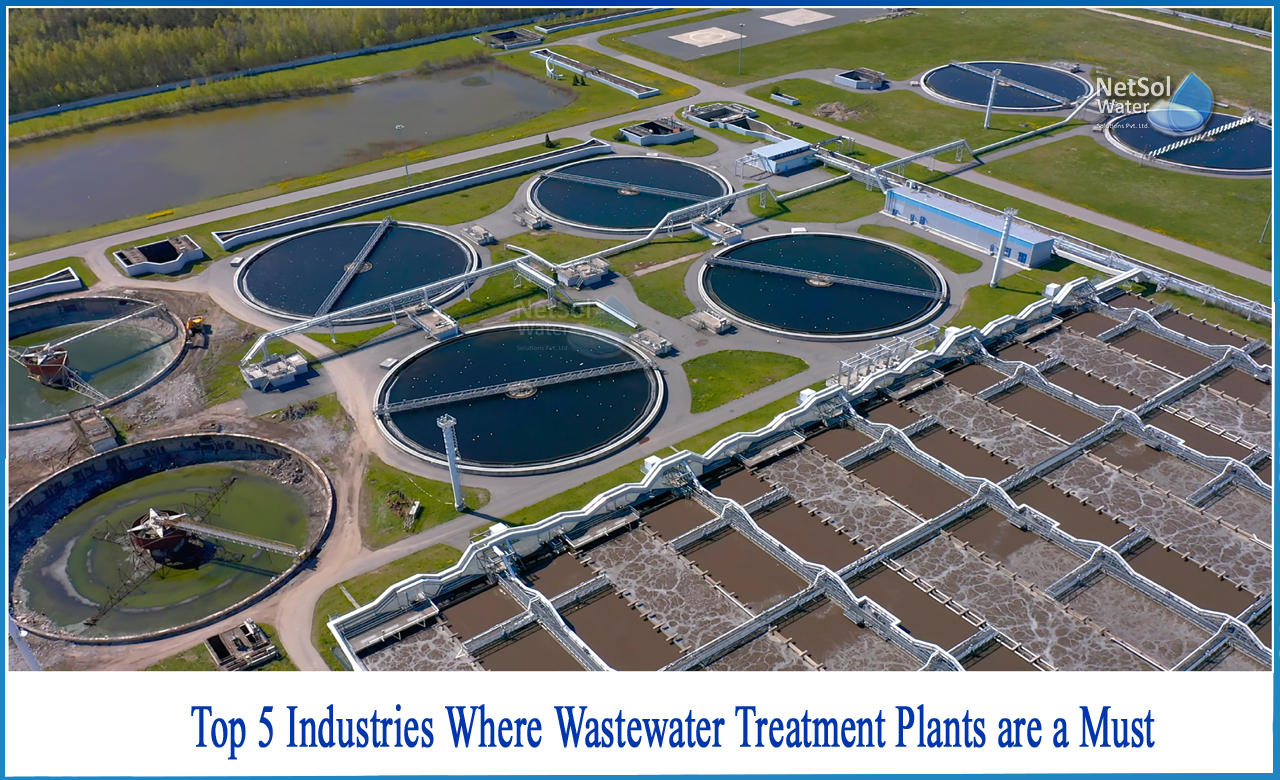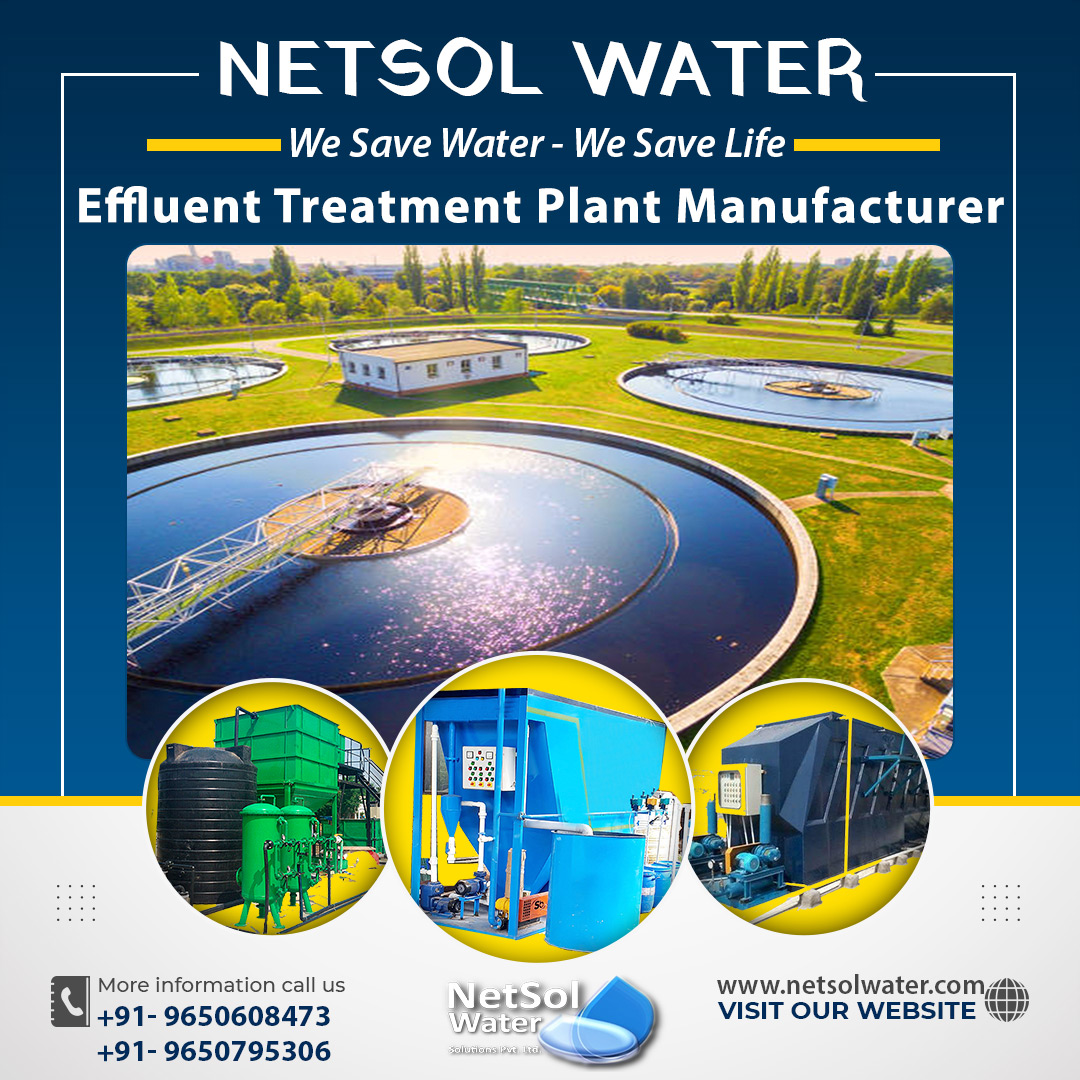Who are the Top 5 Industries where WWTP are a must?
Wastewater treatment plants (WWTPs) are essential for Environmental protection. Using appropriate technologies and well-established operating procedures, numerous contaminants from wastewaters, such as organic matter, nitrogen, and phosphorus, may be removed, preventing negative environmental effects.
Top-5 industries where WWTP's are a must
1: Plants for Food and Beverages Industry
Processing food products necessitates a bigger volume of water in the food sector. The strength and properties of wastewater released by the food and beverage industry varies. High amounts of suspended solids, total solids, BOD (Biological Oxygen Demand), COD (Chemical Oxygen Demand), dissolved oxygen, oil and grease, fats, sugar, colour, preservatives, and typically nutrients such as nitrogen, ammonia, and phosphate are found in wastewater from the food sector. The greatest strategy to combat water pollution is to build a wastewater treatment plant for food processing industry. Its primary goal is to create a product that may be safely released into a watercourse or sewer while staying under the recommended discharge limits.
2: Plants for Dairy Producing Industries
Pasteurization or homogenization of milk, butter, cheese, or yoghurt produces wastewater with significant BOD and COD loads, which must be decreased before being sent to municipal treatment facilities. Buttermilk, whey, and their derivatives are common by-products. During the process, a large volume of water is utilised, resulting in effluents comprising dissolved carbohydrates and proteins, lipids, and maybe additive residues.
3: Plants for Paper and Pulp Industry
The pulp and paper (P&P) sector is one of the most water-intensive industries in India, requiring 54 cubic metres of water per metric tonne of finished product on average. P&P mills produce huge amounts of wastewater and residual sludge waste due to the use of water in practically every stage of the manufacturing process, posing a number of difficulties in terms of wastewater treatment, discharge, and sludge disposal. In terms of wastewater and solid waste management, however, increasingly advanced treatment technologies, including new tactics focused towards water reuse and resource recovery, present feasible solutions for P&P enterprises.
The fundamental goal of the technology is to reduce all waste to zero by separating water and salt using evaporation and separation technology. Before being discharged into the environment, the wastewater must meet certain quality standards.
4: Plants for the Manufacturing Sector
According to the Ministry of Environment and Climate Change guidelines, all manufacturing companies such as electroplating and phosphate industries, paper industries, steel mills, sugar mills, dyeing industries, food & beverage industries, pharmaceutical & drug plants, tanneries, and automobiles have faced strict regulations on waste and its unregulated discharge. It's used to clean up industrial trash. These wastewater treatment plants have a reputation for conserving energy and removing pollution while operating at a low cost. It aids in the resolution of environmental pollution issues without exposing them to the open air.
5: Pharmaceutical Industry Plants
During the production or formulation of medicines, the pharmaceutical sector generates a lot of wastewater. Unidentified particles are effectively removed by aerobic/anaerobic treatment, membrane filtration, and RO.
In the aeration treatment process, the wastewater is aerated by blowing air through an air blower for a day. The wastewater is filtered in a bar screen chamber, where floating particles are filtered out as part of the preliminary treatment. Oil and grease, as well as hazardous compounds, are found in industrial effluents. Because industrial wastewater contains a wide range of contaminants, the pharmaceutical sector requires specialized treatment technology known as Wastewater Treatment Plants to clean wastewater.
Conclusion
Wastewater treatment plants are used by a growing number of industries to clean wastewater.
The “Ministry of the Environment and Climate Change” has recommended standards for cleaning wastewater before it is released back into the water system. Contaminated Water has a negative impact on marine life, and it will disrupt the current balance of fresh water on the planet. Because freshwater availability is just 3%, it is critical to return fresh water to the ecosystem.
Various external elements, such as chemicals, dust, organic compounds, and biological material, contaminate water. Before garbage is released into the environment, wastewater enters and passes through various procedures. Depending on the chemical and physical features of wastewater in industrial wastewater, it is developed in a multi-stage treatment process.A wastewater treatment plant processes wastewater and can also be adjusted so that the treated water can be reused. It assists small and medium-sized businesses by reducing waste from their operations. Without wastewater treatment, we will be unable to obtain fresh, drinkable, and usable water for domestic purposes.
What can Netsol Water provide?
Netsol Water is a significant water and wastewater treatment firm in India, offering WTP, WWTP, STP, ETP and RO Plant manufacture, among other services. The company creates equipment’s and is committed to providing practical solutions that help businesses flourish.
We are committed to providing our valued customers with hands-on service, expert counselling, and training. We can provide facilities to treat effluent from all industries, be manufacturing or processing.




